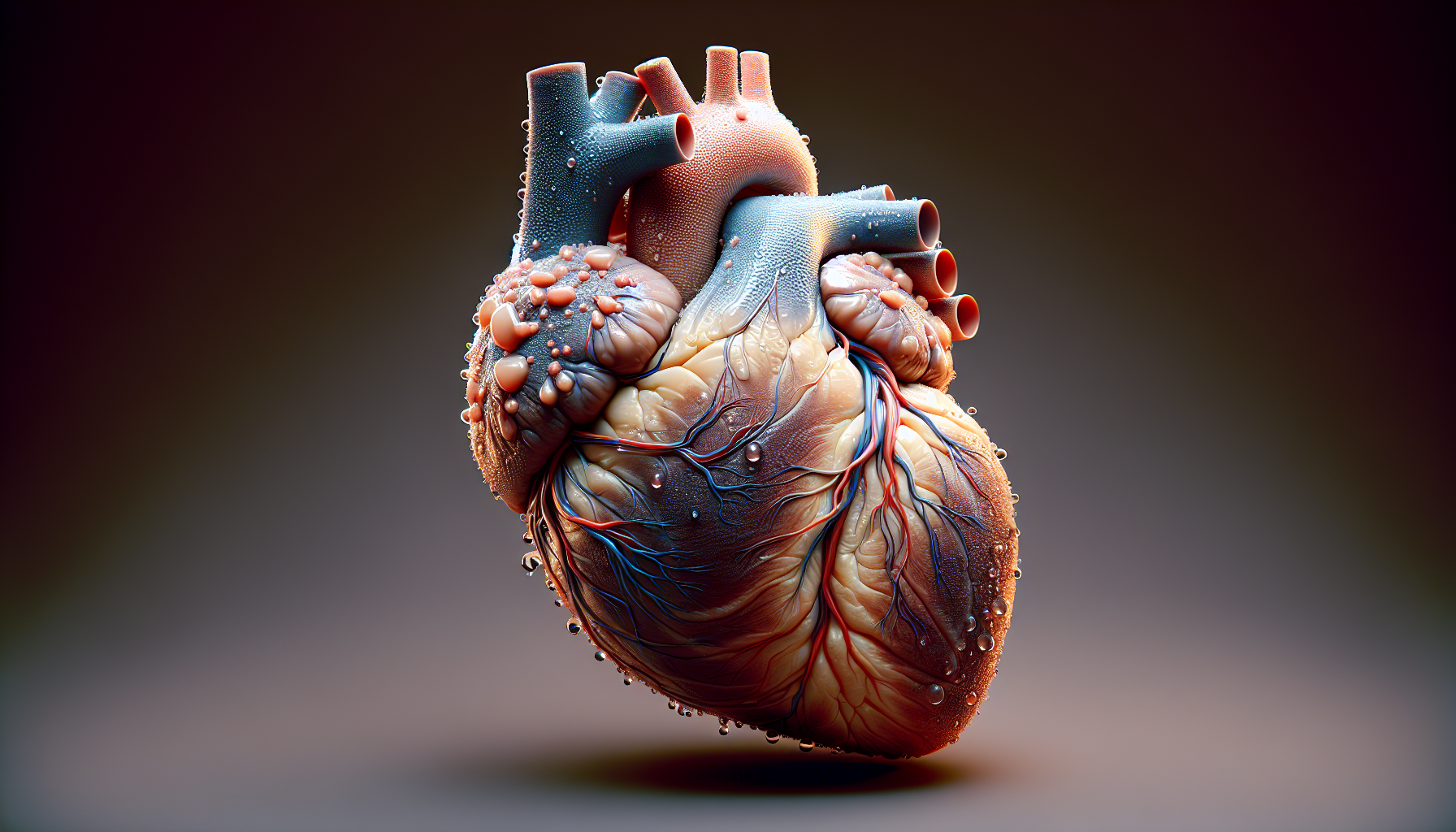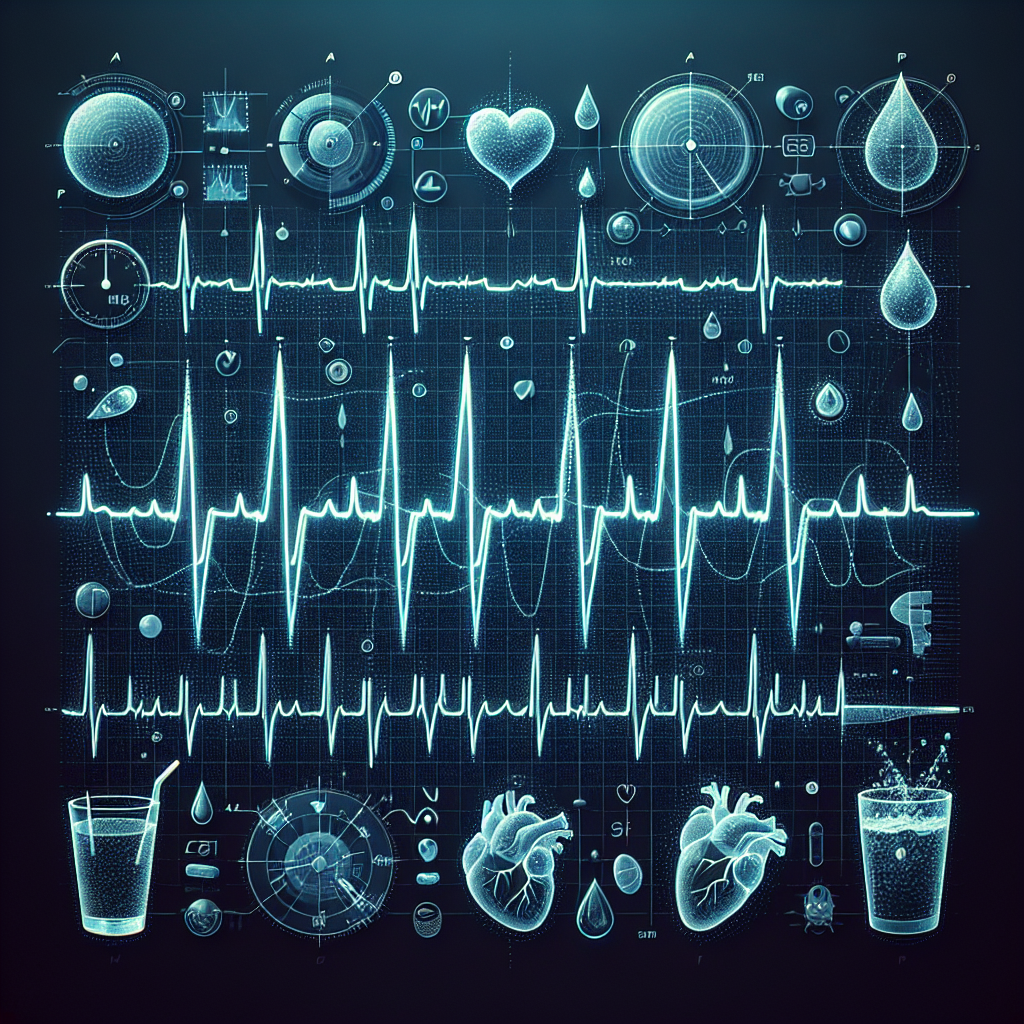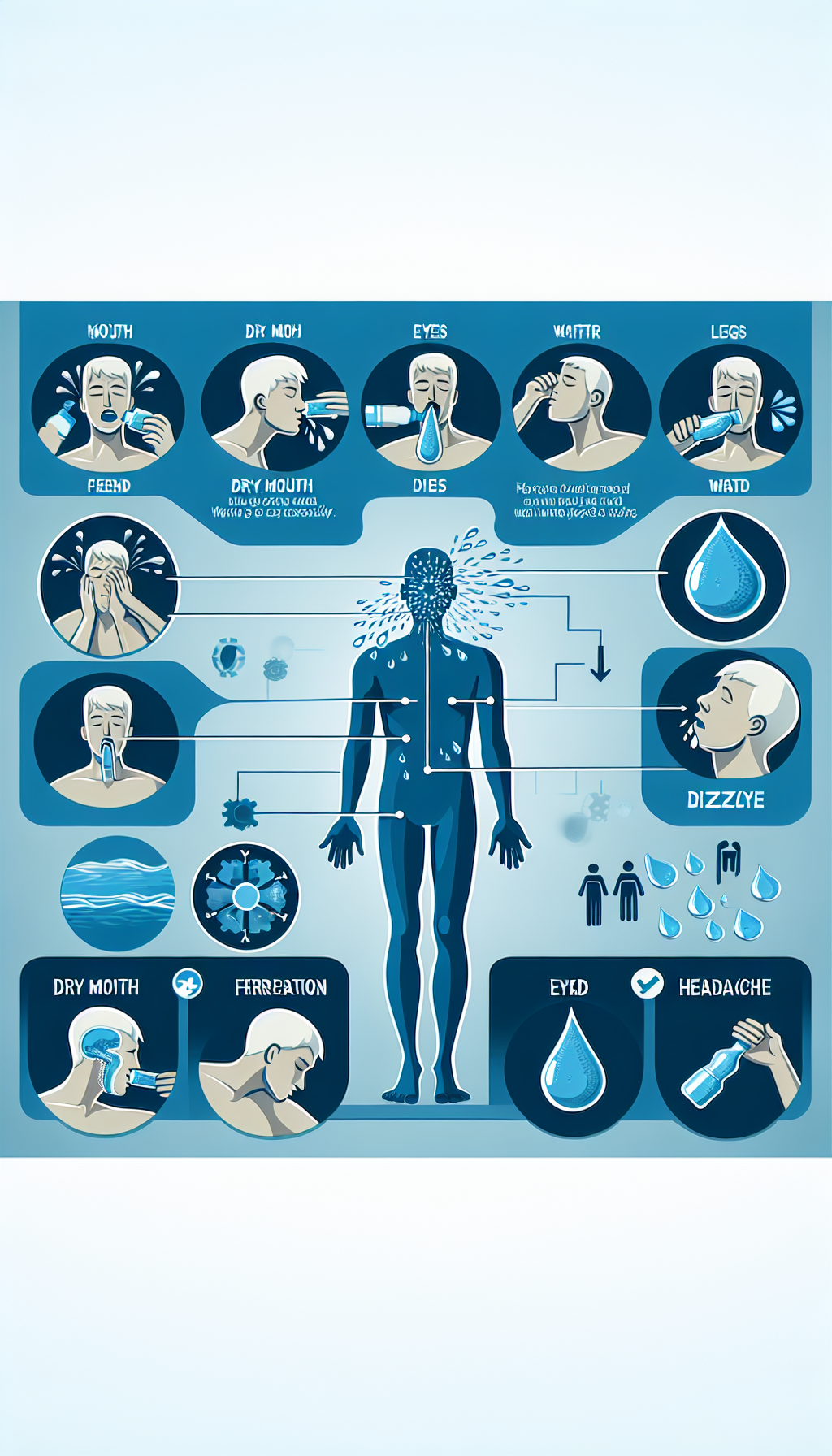Chronic dehydration is a state that can creep up silently and affect various aspects of health, including the heart. While most of us understand the importance of staying hydrated, the long-term effects of not consuming enough fluids can be profound, especially for cardiovascular health. This article delves into the mechanisms by which dehydration can impact heart health and offers insights into how to mitigate these risks.
The Cardiovascular System and Hydration
The cardiovascular system is integral to the body’s functioning, delivering nutrients, oxygen, and hormones to cells and removing waste products. Water is a key component of blood, and without adequate hydration, blood volume can decrease, leading to a host of complications.
For a thorough understanding of the cardiovascular system and its needs, consider reading about Cardiovascular Health, which provides a foundation for the importance of maintaining heart health.
The Direct Impact of Dehydration on Heart Health
Dehydration can lead to increased heart rate and blood pressure. When fluid levels are low, the blood becomes more concentrated and viscous, making it harder for the heart to pump it through the body. This can put a strain on the heart, leading to potential long-term damage if chronic dehydration is not addressed.
Blood Pressure Variations
Dehydration’s impact on blood pressure is significant. A study published by the American Heart Association indicated that dehydration can cause orthostatic hypotension, which is a form of low blood pressure that happens when you stand up from sitting or lying down.
For further insights into blood pressure variations and their effects on cardiac health, the article Understanding Blood Pressure Variations and Cardiac Health is an invaluable resource.
Heart Rate and Rhythm
The heart rate increases in response to dehydration as an attempt to maintain an adequate blood flow and pressure. This can lead to palpitations and, in severe cases, arrhythmias. Chronic dehydration can, over time, place undue stress on the heart, which may contribute to the development of heart disease.
The Indirect Effects of Dehydration on Heart Health
Chronic dehydration can also indirectly affect heart health through its influence on other body systems.
Kidney Function and Fluid Balance
The kidneys play a crucial role in regulating fluid balance and blood pressure. Dehydration can impair kidney function, leading to an accumulation of waste products in the blood and potential kidney damage, which can indirectly impact heart health.
Electrolyte Imbalance
Water is essential for maintaining electrolyte balance. Electrolytes like sodium, potassium, and magnesium are critical for heart function. An imbalance caused by dehydration can lead to cardiac arrhythmias and potentially increase the risk of a heart attack.
Strategies for Maintaining Hydration and Heart Health
Staying hydrated is key to supporting heart health, but it requires more than just drinking water. Here are some strategies to maintain proper hydration:
Understand Your Hydration Needs
Individual hydration needs vary based on factors like climate, activity level, and overall health. Understanding these needs is crucial for maintaining proper hydration.
Monitor Fluid Intake
Keeping track of how much water you drink can help ensure you’re meeting your body’s requirements. This can be as simple as setting a daily water intake goal or using apps designed to remind you to drink water throughout the day.
Choose Hydrating Foods
Fruits and vegetables with high water content can contribute to overall hydration. Incorporating foods like cucumbers, watermelon, strawberries, and oranges into your diet can help maintain adequate fluid levels.
Pay Attention to Signs of Dehydration
Common signs of dehydration include thirst, dry mouth, fatigue, dark urine, and dizziness. Recognizing these early can help prevent chronic dehydration.
Educate Yourself on Heart Health
It’s important to understand the various factors that contribute to heart health. Resources like Heart Health Awareness and the Importance of Education can provide valuable information.
Comprehensive Resources on Hydration and Heart Health
For those interested in exploring the topic further, here are some niche resources that delve into the specifics of hydration and heart health:
- The Role of Water in Human Biology – A detailed exploration of the function of water in various biological processes, including its impact on cardiovascular function.
- Hydration and Cardiac Performance – Research examining the effects of hydration status on heart rate, blood pressure, and cardiac output.
- Fluid Balance and the Heart – A comprehensive review of how fluid balance affects heart health, with a focus on the role of the kidneys and the cardiovascular system.
Conclusion
Chronic dehydration is a silent yet significant risk factor for heart health. By understanding the implications and adopting strategies to maintain hydration, we can support our cardiovascular system and overall well-being. Remember to listen to your body, monitor your fluid intake, and educate yourself on the intricate relationship between hydration and heart health. With awareness and proactive measures, we can help protect one of our most vital organs and ensure a healthier, more vibrant life.



